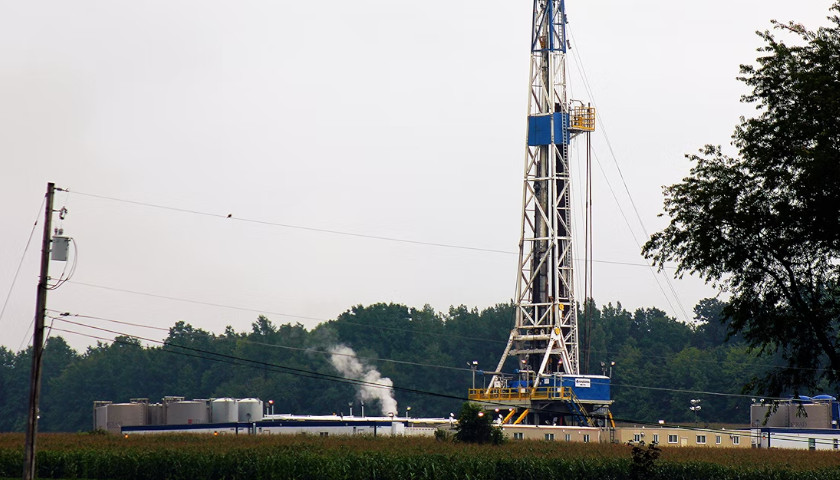Pennsylvania State Senator Gene Yaw (R-Williamsport) this week announced he is authoring a bill to bar any county that bans natural gas development on county-owned lands from getting certain natural gas revenues.
Specifically, Yaw’s proposal would prevent those jurisdictions from receiving allocations from the commonwealth’s gas-drilling impact fee, including any grants from the Marcellus Legacy Fund that finances regional environmental improvement projects. Revenues collected from the levy on companies extracting gas from the sedimentary rock known as Marcellus Shale totaled $234.4 million last year. The fee has brought nearly $2.3 billion into the state treasury over the last decade.
The Keystone State produces more natural gas than any other state except Texas and relies on the fuel to power homes and businesses far more than on any other energy source, according to the U.S. Energy Information Administration.
“It is only fitting that those counties which choose to support the safe and responsible development of our domestic energy resources benefit from those Impact Fee and Legacy funds,” Yaw wrote in a memorandum asking Senate colleagues to co-sponsor his legislation.
The memo said cities, townships and boroughs within counties that prohibit natural gas exploration would still get their due allotments of impact-fee dollars.
As Yaw offered this policy idea, Allegheny County Council made the very move the senator hopes to disincentivize. Earlier this month, the 15-member body approved a measure to ban new high-impact industrial activities, including hydraulic fracturing (or “fracking”) for natural gas extraction, in county parks. An existing gas lease at Deer Lakes Park held by Range Resources can continue under the new prohibition but it cannot expand.
County Executive Rich Fitzgerald (D) vetoed the bill last week but council overrode him.
In the initial vote, Democrats Nick Futules and Bob Macey joined council’s only two GOP members, Samuel DeMarco and Suzanne Filiaggi, in opposing the fracking ban. Even at that point, support for the measure was effectively veto-proof. During the override vote, Macey joined the majority of councilpersons in backing the bill, later explaining that disgruntled constituents prevailed upon him to reverse himself.
“I didn’t really flip,” he told reporters. “I listened to my constituents; I got some phone calls, got emails over the last week or so and I try to do the will of the people.”
DeMarco expressed disappointment in council’s decision, worrying that it will negatively effect his community economically.
“The loser in my opinion is Allegheny County, because I believe what [the bill’s] doing is sending a signal to the region or to businesses out there that we could be closed for business here,” he said.
The Marcellus Shale Coalition, an organization of industry stakeholders, lamented Allegheny County’s new policy.
“County Council has put politics ahead of good governance and the sound policymaking needed to attract jobs, drive economic growth and strengthen our environment,” coalition President Dave Callahan said in a statement. “It’s unfortunate the county has closed the door to future opportunities when the record is clear: we are developing natural gas in a way that protects our environment and grows our economy. Especially now – when our country and world are starved for affordable, reliable and clean energy – we need to harness our abundant resources to create sustained growth across the region.”
Revenue has flowed copiously to the county from the natural gas exploration that has taken place there so far. After the Deer Lakes Park lease went into effect in 2014 it has generated over $15 million in public money, much of which has funded park improvements and other infrastructure projects.
Yaw’s legislation banning actions like Allegheny County’s will likely pass the Republican-controlled General Assembly if his chamber and the House of Representatives take up the bill. Should they do that in the 10 session days that remain this year, supporters might have difficulty getting Gov. Tom Wolf (D) to sign it. While Wolf does not oppose fracking outright, he has backed onerous regulations on the fossil-fuel industry and has pushed for additional taxation of gas extraction beyond the corporate income taxes and impact fees that drillers already pay.
– – –
Bradley Vasoli is managing editor of The Pennsylvania Daily Star. Follow Brad on Twitter at @BVasoli. Email tips to [email protected].




